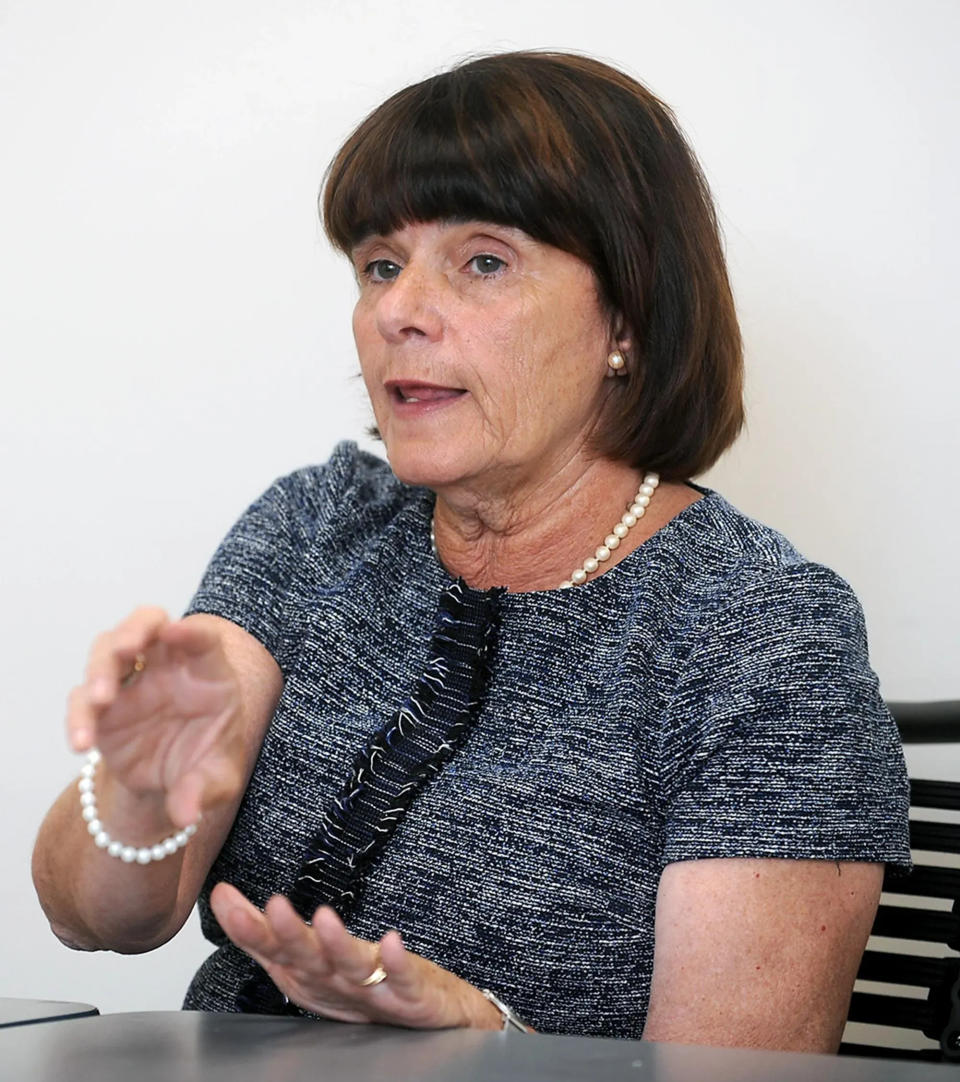'Safe space on the sidelines': Panel tackles racism at student sporting events
- Oops!Something went wrong.Please try again later.
An online panel hosted this week by Middlesex District Attorney Marian Ryan, titled "Creating Safe Spaces on the Sidelines," explored ways to combat incidents of racism and bias in local schools and at student sporting events.
Organizers of the event, subtitled "A Panel Discussion on Fostering a Culture of Respect and Conduct in Our Schools and at Athletic Events," said the Zoom meeting on Wednesday was not prompted by any particular event at a specific school. But an invitation to the panel said it was designed to "explore incidents of hate and bias that have been occurring in our schools and specifically at athletic events."

But the panel was timely. In late January, a Wayland High School girls' basketball player endured racial taunts during a game by student spectators at Westford Academy. The Wayland school district has since withdrawn from all spring athletics events with Westford.
Also, residents in Hopkinton are continuing to come to grips with disturbing events surrounding the death last year of high school student Mikayla Miller.
After racist taunts: Residents from Westford visited Wayland Tuesday night to talk diversity
More: Silence around Mikayla Miller belies Hopkinton’s changes 1 year after teen’s death
Ryan said Middlesex County has an Anti-Hate and Anti-Bias Task Force, launched in August 2020. It includes lawmakers, educators, community advocates and others who are always looking at these issues and “trying to be as preventative as possible.”
Wednesday's online panel featured three speakers: Michael Rubin, assistant director of Massachusetts School Administrators' Association (MSAA) and Massachusetts Interscholastic Athletic Association (MIAA); Maryam Jernigan-Noesi, Ph.D.; and Steve Burton, sports anchor at WBZ-TV who also works with youth through his family's Ron Burton Training Village.
Each panelist spoke about how school officials and parents can model better behavior for their kids and encourage them to be good allies for one another.
Jernigan-Noesi highlighted how incidents in schools can cause some children to develop racial trauma on a mental and or physical level.
Additionally, she said racial incidents take various forms — such as microaggressions and microinsults — and can produce symptoms similar to that of PTSD, emotional pain, anxiety and depression. Jernigan-Noesi also said youth experience these incidents with varying levels of severity, on an individual, institutional and systematic level. This can hinder the student's experience in the classroom and how they feel in their overall school environment.
Ryan urged schools and parents to use affirmative actions to address racial or violent incidents and to have tough conversations that will have a more positive impact on students and help create long-lasting behavioral changes.
“Educational leaders are called to action and must act,” Rubin said. The Massachusetts Interscholastic Athletic Association now requires an implicit bias course and diversity equity inclusion course.
In addition, the MIAA has developed a discriminatory incident report form, which schools involved in a racial incident must fill out and send to the MIAA within 24 hours. They are also required to have a timely investigation and file a follow-up report.
Rubin said officials have been working on developing the incident report project since October 2020, upon the suggestion of Cambridge Rindge and Latin School’s athletic department.
In its early stages, Rubin created a subcommittee consisting of members from the MIAA's diversity, equity and inclusion Committee, sportsmanship committee and game officials.
Since December, schools have used a “pilot” version of the incident report form, Rubin said. However, the MIAA will compile all data and make any necessary improvements before it creates a final protocol to present to its board of directors for inclusion as an official rule in the MIAA handbook.
Once there is enough data to analyze, Rubin said the goal is to see what particular cities and schools have the highest number of incident reports and swiftly address the issue.
If parents and students believe their school’s principal does not respond appropriately to an incident, Rubin recommended they contact their school superintendent. The next step would be to bring the issue the school committee.
"You got to step up, you can’t sit back," Rubin said.
Jernigan-Noesi also said youth tend to not directly report these incidents so, if it is addressed in the moment, this can create a culture where those behaviors and attitudes are not tolerated.
“Winning this game will require a team effort,” Rubin said.
Ryan said the Anti-Hate and Anti-Bias Task Force hosts similar events on a regular basis on a variety of topics as a means to engage in community conversation and educate members of the task force, school officials, and parents.
This article originally appeared on MetroWest Daily News: DA Ryan hosts panel on racism and bias in schools and sporting events

